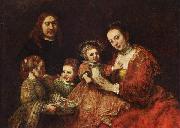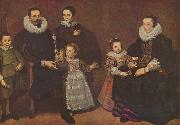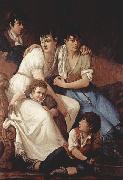Wholesale Oil Painting No Minimum |
|||||||||||
|
|
|||||||||||

|
|||||||||||
|
|
|
||||||||
Rembrandt Peale1778-1860 Rembrandt Peale Galleries Rembrandt Peale (February 22, 1778 ?C October 3, 1860) was a 19th century American artist that received critical acclaim for his portraits of presidents George Washington and Thomas Jefferson. Although modern art critics would consider Peale??s artwork as French neoclassical, its dark and stylized characteristics are similar to 15th and 16th century paintings. Rembrandt Peale was born the third of six surviving children (eleven had died) to his mother, Rachel Brewer, and father, Charles Willson Peale in Bucks County, Pennsylvania, on February 22, 1778. The father, Charles, also a notable artist, taught each child to paint scenery and portraiture, and Rembrandt was no exception. Charles tutored Rembrandt about the importance of having a strong mind from learning arts and sciences. At the age of eight, Rembrandt discovered drawing, and at thirteen, painted his first known self-portrait. Later on in his life, Rembrandt Peale "often showed this painting to young beginners, to encourage them to go from 'bad' to better..." like his steady progressions to become a successful portraitist. A year after his mother??s death and remarriage of his father, Rembrandt Peale left the school of the arts, thereby applying his time to completing his first ever self-portrait at the age of 13. The canvas illustrates early mastery of a young aspiring artist, seeming very mature. The clothes, however give the notion that Peale over-exaggerated what a 13 year old would look like. This style demonstrates early forms of neoclassicism by the looks of Peale's angel-like hair, the way it waves and curls in such a fashion so as to depict an angel from a general Renaissance artist's works of art. In July of 1787, Charles Willson Peale introduced his son Rembrandt to George Washington, where the young aspirant artist watched his father paint the remarkable figure of the country. In 1795, at the age of 17, Rembrandt painted an aging Washington, though the painter had depicted the politician as far more aged than the original facial characteristics. It did, nevertheless attain praise and Rembrandt had begun his debut. At the age of 20, Rembrandt married 22-year-old Eleanor May Short (1776-1836) at St. Joseph's Catholic Church in Philadelphia. During their marriage, Rembrandt and Eleanor had nine children: Rosalba, Eleanor, Sarah Miriam, Michael Angelo, and Emma Clara among them. In 1822, Peale moved to New York City where he embarked on an attempt to paint what he hoped would become the "standard likeness" of Washington. He studied portraits by other artists including John Trumbull, Gilbert Stuart and his own father, as well as his own 1795 picture which had never truly satisfied him. His resulting work Patriae Pater, completed in 1824, depicts Washington through an oval window, and is considered by many to be second only to Gilbert Stuart's iconic Athenaeum painting of the first president. Peale subsequently attempted to capitalize on the success of what quickly became known as his "Porthole" picture. Patriae Pater was purchased by Congress in 1832 and still hangs in the U.S. Capitol. Later on, Peale made over 70 detailed replicas of the same "father of our country", the first President of the United States. Peale continued to paint other noted portraits, such as those of the third president Thomas Jefferson while he was in office (1805), and later on a portrait of Chief Justice John Marshall. |
||||||||
|
|
||||||||
Familienportrat
Familienportrat Painting ID:: 71415 |
1663-1668
Oil on canvas
126 x 167 cm 1663-1668 Oil on canvas 126 x 167 cm |
|||||||
|
|
||||||||
Cornelis de Vos1585-1651 Flemish Cornelis de Vos Gallery Flemish portrait and figure painter. He was a contemporary of Rubens, who sent many sitters to him. Although of the school of Rubens, Vos developed an individual style of portraiture in which cool grays predominate. His representations of children were particularly successful. An example of his many portraits is that of Abraham Grapheus (Antwerp). His brother, Paulus de Vos, c.1596?C1678, was an excellent painter of animals and hunting scenes. His paintings show the influence of his brother-in-law, Frans Snyders. His work is best seen in the museums of Madrid and St. Petersburg. |
||||||||
|
|
||||||||
|
|
Familienportrat
Familienportrat Painting ID:: 90271 |
1631(1631)
Medium oil on canvas
Dimensions 165 x 235 cm
cjr 1631(1631) Medium oil on canvas Dimensions 165 x 235 cm cjr |
||||||
|
|
||||||||
Francesco Hayez1791-1882 Italian Francesco Hayez Galleries Hayez came from a relatively poor family from Venice. His father was of French origin while his mother, Chiara Torcella, was from Murano. The child Francesco, youngest of five sons, was brought up by his mother sister, who had married Giovanni Binasco, a well-off shipowner and collector of art. From childhood he showed a predisposition for drawing, so his uncle apprenticed him to an art restorer. Later he became a student of the painter Francisco Magiotto with whom he continued his studies for three years. He was admitted to the painting course of the New Academy of Fine Arts in 1806, where he studied under Teodoro Matteini. In 1809 he won a competition from the Academy of Venice for one year of study at the Accademia di San Luca in Rome. He remained in Rome until 1814, then moved to Naples where he was commissioned by Joachim Murat to paint a major work depicting Ulysses at the court of Alcinous. In the mid 1830s he attended the Salotto Maffei salon in Milan, hosted by Clara Maffei (whose portrait Hayez painted for her husband), and he was still in Milan in 1850 when he was appointed director of the Academy of Brera there. Assessment of the career of Hayez is complicated by the fact that he often did not sign or date his works. Often the date indicated from the evidence is that at which the work was acquired or sold, not of its creation. Moreover he often painted the same compositions several times with minimal variations, or even with no variation. His early works show the influence of Ingres and the Nazarene movement. His later work participates in the Classical revival. |
||||||||
|
|
||||||||
|
|
Familienportrat
Familienportrat Painting ID:: 94042 |
1807(1807)
Medium oil on canvas
Dimensions Deutsch: 134 x 94,5 cm
cjr 1807(1807) Medium oil on canvas Dimensions Deutsch: 134 x 94,5 cm cjr |
||||||
|
|
||||||||
|
Francesco Hayez 1791-1882 Italian Francesco Hayez Galleries Hayez came from a relatively poor family from Venice. His father was of French origin while his mother, Chiara Torcella, was from Murano. The child Francesco, youngest of five sons, was brought up by his mother sister, who had married Giovanni Binasco, a well-off shipowner and collector of art. From childhood he showed a predisposition for drawing, so his uncle apprenticed him to an art restorer. Later he became a student of the painter Francisco Magiotto with whom he continued his studies for three years. He was admitted to the painting course of the New Academy of Fine Arts in 1806, where he studied under Teodoro Matteini. In 1809 he won a competition from the Academy of Venice for one year of study at the Accademia di San Luca in Rome. He remained in Rome until 1814, then moved to Naples where he was commissioned by Joachim Murat to paint a major work depicting Ulysses at the court of Alcinous. In the mid 1830s he attended the Salotto Maffei salon in Milan, hosted by Clara Maffei (whose portrait Hayez painted for her husband), and he was still in Milan in 1850 when he was appointed director of the Academy of Brera there. Assessment of the career of Hayez is complicated by the fact that he often did not sign or date his works. Often the date indicated from the evidence is that at which the work was acquired or sold, not of its creation. Moreover he often painted the same compositions several times with minimal variations, or even with no variation. His early works show the influence of Ingres and the Nazarene movement. His later work participates in the Classical revival. Familienportrat 1807(1807) Medium oil on canvas Dimensions Deutsch: 134 x 94,5 cm cjr |
||||||||
|
|
||||||||
|
Prev Next
|
||||||||
|
|
||||||||
|
Related Paintings to Francesco Hayez :. |
||||||||
|
|
||||||||
|
CONTACT US |



